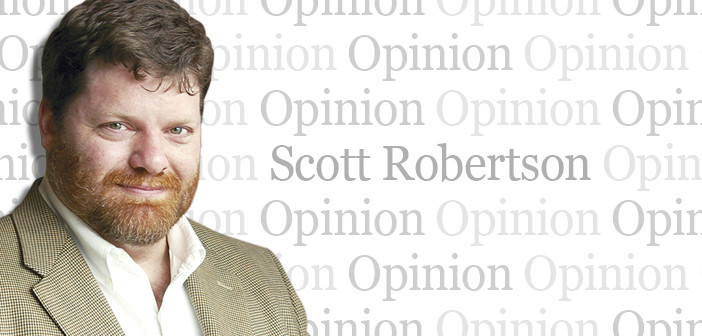By Scott Robertson
The good news is the Washington County Commission is inching toward modifying its archaic policy on allowing public comment during commission meetings. The bad news is the process is not without a few bumps in the road.
The Rules Committee brought a new policy to the floor at Monday evening’s full commission meeting in Jonesborough, explaining in detail how it differed from the previous policy, only to tell the commission it had, just since submitting the resolution, found that a few more tweaks needed to be made, so would everybody please vote “no” to the recommendations the committee itself was making. The commission did so, then voted to refer the resolution back to the Rules Committee so it could offer up the really-honest-and-we-mean-it-this-time final version of the new policy at next month’s commission meeting.
As Marty Feldman once said, “Them’s governments for you.”
When one understands how the commission got itself into a situation in which the commissioner who moved the resolution ended up saying, “let’s all vote against it,” one can see why it was the right thing to do. But it sure looked silly as it happened.
By the way, before we get into the meat of what the new rules are expected to say, and why they didn’t pass this month, let’s quickly recap the current rules on public comment.
Today, if a member of the public wishes to speak, he or she must be invited to do so by a member of the commission. Should any commissioner object to that individual having the opportunity to address the commission, the full body must immediately vote up or down on whether to allow it.
Under the proposed rules as presented at Monday’s commission meeting, a designated period for public comment would be inserted into the agenda of every regularly scheduled full commission meeting, after the prayer and Pledge of Allegiance and before the public hearings. Individuals wishing to speak during that period would have up to three minutes each to do so, provided they sign in first, and provided they limit their comments to items on the agenda for that meeting.
The sign-in sheet would be placed just outside the commission chambers (Courtroom 7 of the George Jaynes Justice Center) no fewer than 15 minutes before each meeting. When the meeting is gaveled to order, the sheet would be brought in to the commission chair so that he or she might recognize the speakers at the appropriate time.
Quoting now from the new rule as presented Monday, “The time allowed may be extended by the Chair, subject to the approval of the Board. At any time, a member of the Board may object to a non-commission member’s comments continuing. If there is an objection by any member of the board, the Chair shall immediately take a vote to approve or disapprove the objection, with a majority vote of the members present and voting for a decision. If the objection is not approved, the non-commission individual shall be allowed to continue to address the Board. Should the objection be approved, the noncommission individual shall cease their comments and the Chair shall move to the next order of business.”
As soon as Rules Committee Chair Lee Chase explained this to the full commission, he was questioned by Commissioner Gary McAllister, “If I am a member of the public wishing to speak and I don’t sign in and something comes up, I cannot speak about it?”
“Right,” Chase replied. “That’s correct.”
Commissioner Joe Wise then moved the resolution to allow further discussion. In order for a resolution to be discussed, it must be moved and seconded. After only a minute of discussion, though, Commissioner Matthew Morris called the question.
That’s when everyone discovered that Wise had moved the resolution without actually planning to have it passed Monday night. He had wanted to have it referred back to committee. When Morris called the question, however, it forced an up or down vote, which the Rules Committee wasn’t ready for.
So Wise offered a point of information, stating that a bit of housekeeping needed to be taken care of before the vote. Chase pointed out other proposed changes in the rules beyond the public comment section. “There are a couple of other things that have come up since our last meeting,” Chase said. “When the Rules Committee meets again in a month or so, it will need to look at some terminology. For example, there are some references to the county attorney that may now need to say staff attorney.”
Wise then moved that the resolution be referred back to the Rules Committee. Chair Greg Matherly conferred with County Attorney Tom Seeley and confirmed that because of changes that happened between the writing of the resolution and the vote, the resolution needed tweaking before passage.
“So since the question has been called,” Wise said, “let’s all vote against it and then deal with it again.” And that’s what eventually happened.
Any member of the public wishing to comment on these events may do so at next month’s meeting, providing the commission does not vote to the contrary.





